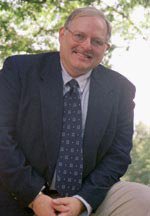news article
The Rev. Dr. John Tyson reflects on John and Charles Wesley’s prayer life
March 27, 2017 / By UNY Communications
Editor’s Note: The next issue of the Advocate, which will arrive at local churches and be accessible through our website in  early April, focuses on prayer. For this issue, we connected with Wesleyan scholar, the Rev. Dr. John Tyson to learn more about John and Charles Wesley’s prayer life and insight on how the Wesley’s teachings can help nurture our prayer life today. Below are some some questions and answers with Rev. Dr. John Tyson. Look to the next issue of the Advocate for more questions and answers with Wesleyan scholars.
early April, focuses on prayer. For this issue, we connected with Wesleyan scholar, the Rev. Dr. John Tyson to learn more about John and Charles Wesley’s prayer life and insight on how the Wesley’s teachings can help nurture our prayer life today. Below are some some questions and answers with Rev. Dr. John Tyson. Look to the next issue of the Advocate for more questions and answers with Wesleyan scholars.
UNY Communications: If John and Charles Wesley were here today, what do you think they would recommend for people who feel that they need to revive their prayer life?
The Rev. Dr. John Tyson: The Wesleys used and enjoyed the Book of Common Prayer and its readings and prayers shaped their daily devotions and prayer life. They also read spiritual classics. Often, it seems we need fresh simulation and new input for our souls; a good devotional guide can sometimes put a new charge and new energy into our prayer life.
UNY Communications: John Wesley would often write out prayers. Do you feel that writing, drawing, or other creative modalities help some to better connect with God through prayer?
The Rev. Dr. John Tyson: I find that writing out my prayers can be very helpful, though I do not do this every day. What helps me about this discipline—it causes me to be more reflective about how I am saying my prayer, and what things and attitudes are coming to expression. Prayer is nothing more than talking with God. But God is a very important person, and when one speaks to an important person it is sometimes a good idea to choose one’s words well. So writing prayers helps me check on my prayer focus, and upon the words (needs, concerns, experiences) with which I come before the Lord.
UNY Communications: John Wesley advocated for fasting as a way to make prayer more powerful and he himself fasted every Friday; at one point in his life, he fasted every Wednesday and Friday. Do you advocate for fasting? If so, how often?
The Rev. Dr. John Tyson: Fasting was very important to the Wesleys. They found it helpful to their prayer life, and to their over-all approach to Christian discipleship. They generally advocated for “fasting or abstinence” as if to remind us that the one is almost as the other. In other words, core virtue being developed in fasting is self-denial and self-denial can be cultivated by not eating or by denying ourselves certain things for a specific time and reason.
But yes, fasting should be directly linked to prayer, because it is not simply going on a diet or trying to develop self-control. “Thy will be done” may be the most difficult clause of the Lord’s prayer, and fasting helps us learn to bend our own will and inclinations to God’s will and God’s work. And that is a pretty good thing, in the process of being a vital Christian disciple. Jesus put it simply: “Deny yourself and follow me.” (Luke 9:23). The two things; discipleship and an appropriate sense of self-denial are intimately related.